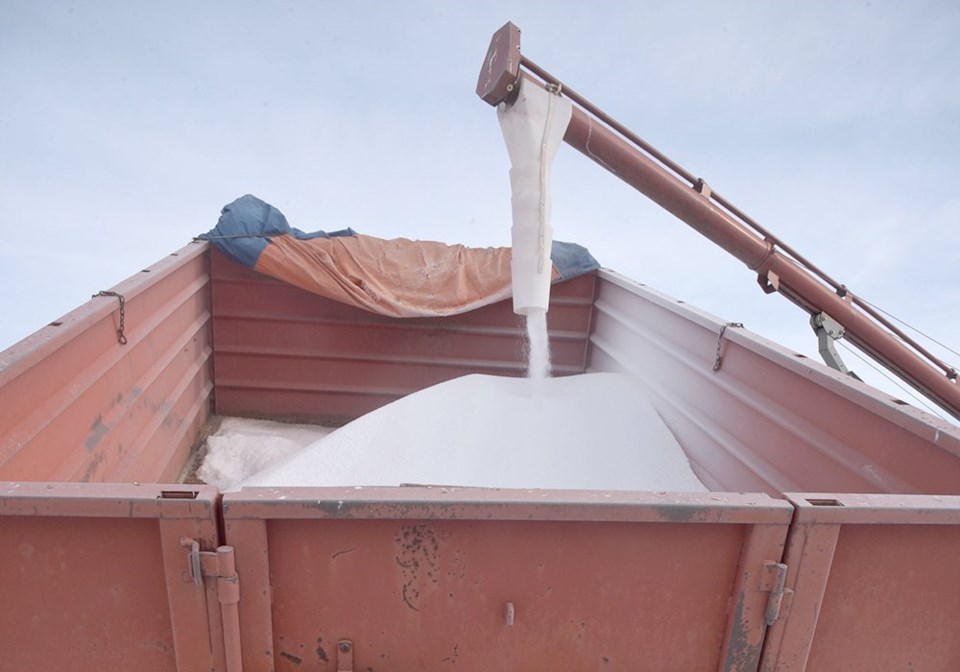WESTERN PRODUCER — The federal Liberal government’s online consultation on its proposed 30-percent reduction of nitrous oxide emissions closed last week but the discussion will continue with technical discussions beginning this month.
The issue became politicized through the summer as Conservative MPs referred to it as an impending fertilizer ban and some farmers said they would be forced to reduce fertilizer use. Researchers and others said lower emissions are possible with new products and technology that will also maintain yields and farmer profitability.
Federal agriculture minister Marie-Claude Bibeau has repeatedly said the 30-percent decrease by 2030 is a target that won’t include a mandated reduction.
Grain Growers of Canada, Western Canadian Wheat Growers and the National Farmers Union all issued comments as the six-month consultation period ended Aug. 31.
GGC, with its 65,000 members in 14 organizations, said there has to be a way to mesh increasing food production with lower emissions.
“With the threat of global food insecurity, we must develop an approach that aligns the imminent need for increased food production with the long-term goal of increasing on-farm sustainability,” said GGC chair and Alberta farmer Andre Harpe.
In its submission to the consultation, GGC said it is concerned that government will limit fertilizer use if progress isn’t made within the next eight years.
“We cannot stress our opposition to such a policy enough,” it said.
The organization recommended working closely with farmers because the target won’t be reached with a one-size-fits-all approach. Individual farm-level variables will affect what works.
The organization also noted the consultation discussion paper referred to the government’s ongoing work on a Green Agricultural Plan and said farmers must be included in the development of that plan.
It recommended Ottawa target reductions in intensity relative to production rather than absolute reduction, address data gaps to make sure the baseline is accurate, and incorporate existing best management practices into the National Inventory Report on emissions.
“We understand the need to hasten the adoption of technologies and practices that could reduce emissions,” said Harpe. “Economic realities and on-farm agronomic necessities will dictate what is feasible. As part of Canadian grain farmers’ ongoing leadership, we continue to work towards developing practical on-farm policy that ensures sustainability and competitiveness.”
The pointed to how much farmers have already done to reduce fertilizer use through technology and agronomy.
President Gunter Jochum said in that organization’s news release that the policy is not what the world needs at a time of food insecurity and inflation.
The association said the actual reduction of greenhouse gases would be “infinitesimal” but the impact on the world would be great due to reduced grain production. It also said the only way to meet the goal in eight years is to reduce fertilizer use.
Chair Daryl Fransoo asked who would pay the price if the policy is put in place.
“Farmers, the poor and the food insecure. This is simply bad policy. Canadian grain farmers are already less fertilizer intensive than most farmers in the world. We are already leaders.”
In its report to the government, WCWG said that meeting the proposed target could actually resulted in more carbon dioxide emissions.
“This is because reducing fertilizer use, as would be required to meet the reduction target by 2030 will result in lower yields and yet the same field operations must be undertaken,” said the submission. “The goal should be to reduce the carbon intensity per unit of output, not reduce the overall output.”
The organization also said the current method of calculating emissions based on sales results in incorrect numbers.
The NFU, meanwhile, issued that suggested the increasing global dependency on nitrogen is killing millions of people and damaging the planet’s ecosystems.
It said small changes through efficiency, best management practices and technology won’t be “enough to deal adequately with the nitrogen crisis we have unleashed.”
Instead, the paper said transformative change is required.
It advocates low-input, organic, regenerative, agro-ecological and minimum-input, no-till systems and reintegrating with biological processes.
“Governments must broaden their focus beyond export maximization and instead embrace multiple goals that include maximizing farmers’ margins and net incomes and increasing the number of farmers,” the paper said.



